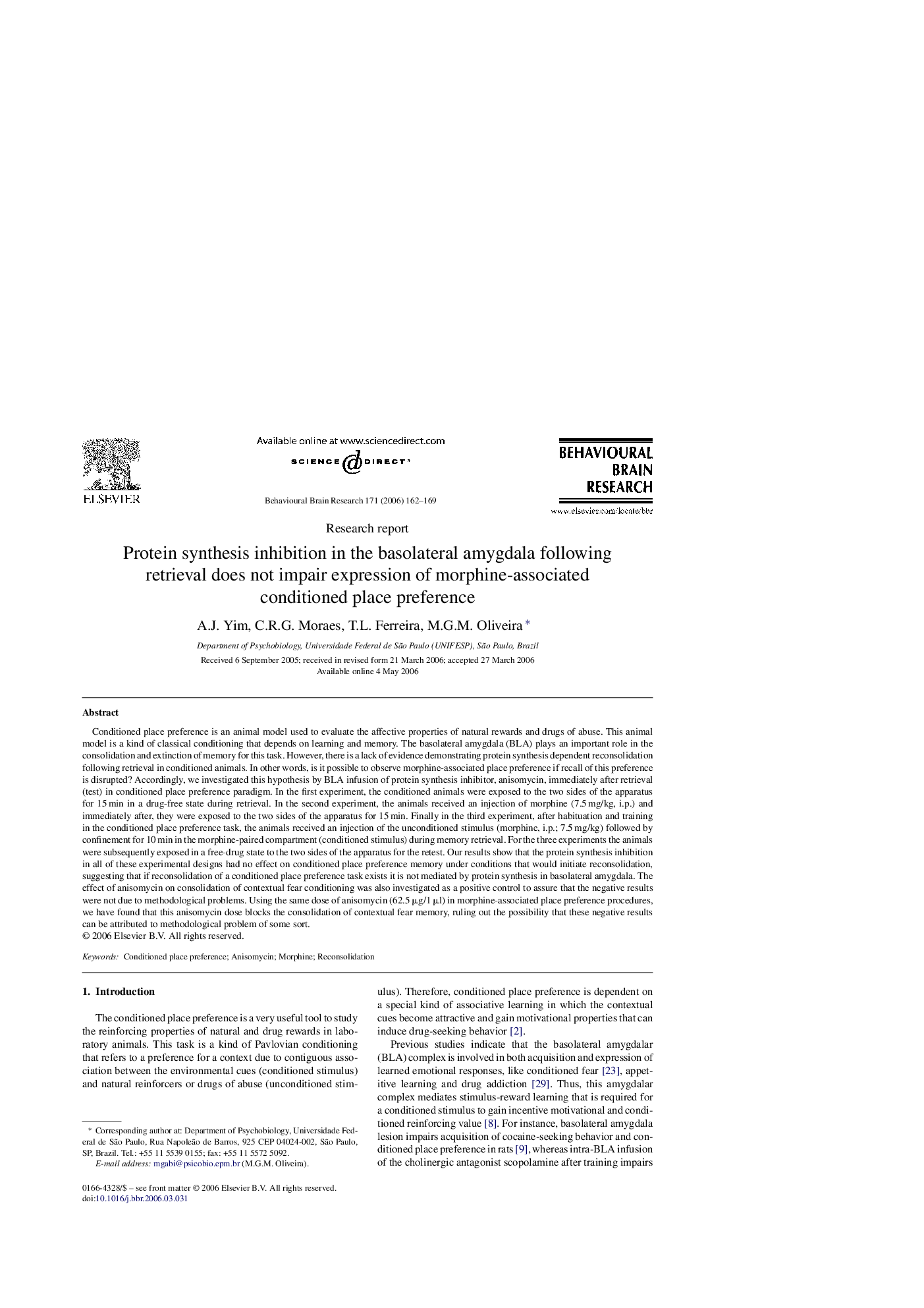| Article ID | Journal | Published Year | Pages | File Type |
|---|---|---|---|---|
| 4316280 | Behavioural Brain Research | 2006 | 8 Pages |
Conditioned place preference is an animal model used to evaluate the affective properties of natural rewards and drugs of abuse. This animal model is a kind of classical conditioning that depends on learning and memory. The basolateral amygdala (BLA) plays an important role in the consolidation and extinction of memory for this task. However, there is a lack of evidence demonstrating protein synthesis dependent reconsolidation following retrieval in conditioned animals. In other words, is it possible to observe morphine-associated place preference if recall of this preference is disrupted? Accordingly, we investigated this hypothesis by BLA infusion of protein synthesis inhibitor, anisomycin, immediately after retrieval (test) in conditioned place preference paradigm. In the first experiment, the conditioned animals were exposed to the two sides of the apparatus for 15 min in a drug-free state during retrieval. In the second experiment, the animals received an injection of morphine (7.5 mg/kg, i.p.) and immediately after, they were exposed to the two sides of the apparatus for 15 min. Finally in the third experiment, after habituation and training in the conditioned place preference task, the animals received an injection of the unconditioned stimulus (morphine, i.p.; 7.5 mg/kg) followed by confinement for 10 min in the morphine-paired compartment (conditioned stimulus) during memory retrieval. For the three experiments the animals were subsequently exposed in a free-drug state to the two sides of the apparatus for the retest. Our results show that the protein synthesis inhibition in all of these experimental designs had no effect on conditioned place preference memory under conditions that would initiate reconsolidation, suggesting that if reconsolidation of a conditioned place preference task exists it is not mediated by protein synthesis in basolateral amygdala. The effect of anisomycin on consolidation of contextual fear conditioning was also investigated as a positive control to assure that the negative results were not due to methodological problems. Using the same dose of anisomycin (62.5 μg/1 μl) in morphine-associated place preference procedures, we have found that this anisomycin dose blocks the consolidation of contextual fear memory, ruling out the possibility that these negative results can be attributed to methodological problem of some sort.
